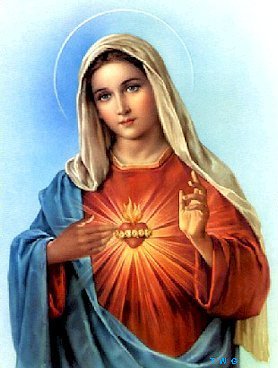 In order for you, dear reader, to see why I think about religion as I do, you need to know what happened to me at age 14.
In order for you, dear reader, to see why I think about religion as I do, you need to know what happened to me at age 14.
One Saturday evening in the summer of 1955, I was sitting at my desk in an alcove of the basement suite of rooms my father had built for my brother Bill and me in our house way at the tail end of Tamalpais Valley, the southern branch of Mill Valley (California). I had been having severe cyclic depressions every two or three weeks for about a year; one was on me that evening.
I was wondering about my parents; we were not an ideal family, but things could have been much worse. I was wondering why Ted Giesecke, the first friend I had made at Tamalpais High, should have to go to hell for being such a happy atheist. (It was Ted’s throwing firecrackers at the workmen building the new Catholic Church below his house that must, I thought, have condemned him, for he certainly didn’t have the respectful attitude toward Christianity that apparently let some pagans through the pearly gates.) Especially I was wondering about sex, because I had gone to confession that afternoon.
Until I was 11, being Catholic was merely something I did with my parents on Sundays, but in Brooklyn, waiting to join my father in Germany, I began taking catechism classes in 1952 in preparation for my confirmation at St. Patrick’s parish. The Baltimore Catechism had seemed like a logical system. At least, each point of doctrine had to be true in order for the ones following it to be true, but I could not see how to deduce the latter from the former. I especially did not understand what we were being taught about sex.
In the 1950s, Catholicism seemed (at least to me) to be all about sex or, more precisely, about not having sex. Jesus was a virgin, his mother was a virgin, all his friends were virgins, and all the saints were young women who had been martyred for refusing to have sex. We were taught to be pure in thought, word, and deed. Even thinking about sex was a terrible sin that God would punish us for. Nothing was taught about forgiveness.
After Brooklyn came Germany, for just over two years, then in December 1954 we returned to the States, in time for Christmas at Nana’s house in Brooklyn. There my cousin Tommy taught me about masturbation. I did not at first realize that this wonderfully pleasurable activity was something that the Church forbade. I had finally gotten up the courage to go confess it that Saturday. Our parish priest said what I had expected, what I had nevertheless hoped he would not say: that it was unconditionally evil, that I must stop it immediately and never do it again. But when I got home, I realized that it seemed an innocent pleasure to me. I did not, could not believe what the Church said about it; yet I also believed that I should believe what the Church said. This seemed an insoluble problem for the moment; so I laid it aside.
Rummaging in a drawer, I came across a pamphlet I had found in 1953 in the lobby of the post chapel in Dillingen-am-Donau. It said nihil obstat et imprimatur on the copyright page; it was an official teaching of the Church. One passage in it, answering a question about how Catholics can believe in the Immaculate Conception and the Virgin Birth, asserted that Catholics are not required to believe anything by blind faith, but instead have all the doctrines of the Church proven to them logically. “Clearly,” I had thought in 1953, “one purpose of the catechism was to prove the doctrines to me, but since I didn’t see how their logic worked, I will have to learn about logic in order to understand the proofs.” I had filed this pamphlet away for future reference.
I reread the passage I remembered, and thought back to my catechism. Since I hadn’t understood the logic of it, I wondered whether anything had been proved to me or not. Oh, but this year I had mastered geometry as the archetypal logical system. I now knew how a logical system worked; and so . . .
(The thought that would have risen into consciousness next would have been something like, “The axioms of any logical system must be accepted on faith, but since this pamphlet, which is an official teaching of the Church, says that nothing need be accepted on faith, I now know that nothing has ever been proved to me, and that I am under no obligation to believe anymore.” But, before that thought could rise up into awareness, the whole Thomist system in me, its bubble pierced by a paradox, all that bound-up psychic energy, layer upon layer of social conditioning, exploded; and all ordinary, rational consciousness ceased.)
The details of the experience were as follows.
There was no sense of time during it; it felt simultaneously instantaneous and unending.
A ball of light, or perhaps of cool yellow fire, filled my field of vision.
The depression had felt like black pitch oozing down behind my eyes; now it sublimed, like dry ice, passing instantly from solid to gaseous, filling me with ecstasy, joy, safety.
I was simultaneously both myself and part of the vast compassionate consciousness of a Person.
A voice was speaking too fast for me to hear words, but it filled me with knowledge.
When it was over, I broke forth in a babble of praise and sorrow, a lamentation that I was merely myself again, a thanksgiving that such a thing had happened to me, addressed to a god about whom I knew nothing, on and on until I fell asleep from exhaustion.
I had not known, and did not deduce until much later, how close I must have been to suicide. Looking back, I can see that the weight of the Church’s teachings were killing me—so Someone removed that yoke from me. Saving my life was a sufficient reason for it to have happened.
(When I told this story to our Full Moon Coven in about 1970, Brandel, one of our staunchest members, commented, “That seems typical of you. You couldn’t have left just because you wanted to. You had to be forced away.”)
The next morning I examined myself curiously to see what had happened. I was no longer obliged to believe in God or any of the church’s teachings. I knew that a Person had cut me loose from having to believe, but otherwise I knew nothing about that Person. On the other hand, I felt a new obligation: to go discover for myself what the truth about things religious might be, not to settle for what anyone else believed, not to depend on anyone’s authority or opinion, but to find out for myself. I’ve now been working on that for 57 years.
There are two conclusions I can draw from the nature of that experience. First, its essence was its bliss; the ecstasy was an order of magnitude more pleasurable than even the most intense orgasm. Hence I suspect that the beatitude of the angels would not be a tranquil serenity. Instead, it would be an uproarious, never-ending, uninhibited sensual delight in playing with the divine. (The Witches are far closer to understanding that Mystery than most Christians are.)
Second, it has seemed obvious to me ever since then that our concept of ourselves as isolated individuals, separate from each other and the divine, is an illusion. I know what I felt, and I come back to that theme many times in my poetry. Finding an explanation for how and why that illusion exists has been an exceedingly gradual process.
So in the summer of 1955 I began looking for information about religion. First I found an essay by Bertrand Russell about agnosticism; second, a summary of Leland’s Aradia. They’re next.
You now know why I am not a True Believer, neither in the doctrines of any one religion nor in the skepticism that denies there can be any truth to religious beliefs. I’m not one, because my Fairy Godmother, or Guardian Angel, or Patron Deity, or Whoever that was, won’t let me be.
















